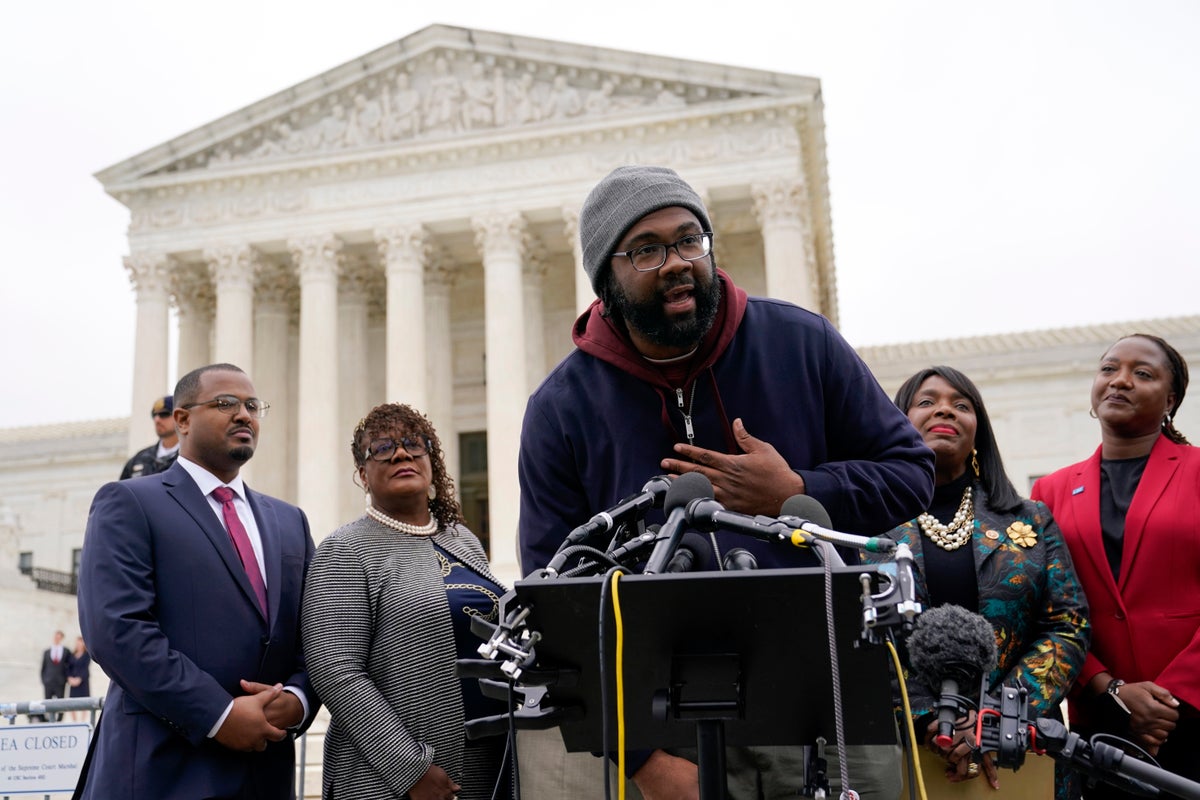
Alabama's governor on Tuesday set a special legislative session to redraw congressional district maps that the U.S. Supreme Court declared unfair to Black voters.
Gov. Kay Ivey set the July 17 session for the Republican-controlled Alabama Legislature after the high court upheld a three-judge panel's ruling that the state illegally diluted the political power of Black voters by having only one majority Black congressional district. The three-judge panel gave legislators until July 21 to submit a redrawn map for review or the court will draw its own.
“The Alabama Legislature has one chance to get this done before the July 21 court deadline," Ivey said in a statement. “Our Legislature knows our state, our people and our districts better than the federal courts or activist groups do.”
The U.S. Supreme Court this month affirmed the panel's finding that Alabama likely violated the Voting Rights Act with a congressional map that had only one majority Black district out of seven in a state where more than one in four residents is Black. The panel said in its 2022 ruling that Alabama should have “two districts in which Black voters either comprise a voting-age majority or something quite close to it.”
“I’m hoping that this is a time where our elected officials choose to put Alabama on the right side of the Voting Rights Act,” said Evan Milligan, the lead plaintiff in the lawsuit that led to the redistricting order, said in a telephone interview. “We spend a lot of time, energy, money, fighting against things that would really benefit a lot of people.”
The Supreme Court decision sets up Alabama’s first significant revamp of its congressional districts since 1992, when Alabama was ordered by the courts to create its first majority-Black district.
The Legislative Committee on Reapportionment, which will draft the lines to be considered by lawmakers in the special session, held its first public hearing Tuesday. House Speaker Pro Tempore Chris Pringle, who serves as co-chairman of the committee, said they have already received dozens of proposed maps.
The plaintiffs in the case have proposed a new map they say would comply with the court's order and the Voting Rights Act. It would redraw the state's 2nd congressional district, now represented by Republican Rep. Barry Moore, to create what is described as an “opportunity” district because it would give Black voters, now making up 50% of the voting age population, a greater opportunity to elect a candidate of their choice. The proposed district would stretch to the west and encompass some Black Belt counties and parts of Mobile County.
“We are urging the redistricting committee and the Alabama Legislature to adopt this map so we can move this process forward and be ready for our next election,” Benard Simelton, president of the Alabama chapter of the NAACP, told the committee.
However, the longtime leader of the Alabama Democratic Caucus, a political organization for Black Democrats, said he is concerned that it did not go far enough to create a “safe Black district.”
"Unless we have a majority voting age population — a sizeable one — we will have nothing. I'm not mad at anyone, but you got to be real," Joe Reed told the committee.
Plaintiffs in a separate redistricting lawsuit have filed their own proposed map, and members of the public have also submitted proposed plans.
Republicans hold a lopsided majority in the Alabama Legislature and have the numbers to pass a plan at will. But they also must approve something that will be deemed satisfactory by the court.
“We’re looking at everything now and everything that has been submitted by the public and the plaintiffs,” Pringle said Monday. The committee will meet again next month.
Rep. Chris England, a Democratic member of the committee, said after the meeting that he is concerned lawmakers aren't focusing enough on the court's directive.
“It sort of feels like Groundhog Day. We are doing the same things that got us in hot water. I'm hoping that at some point we will see some fundamental changes where compliance with the Voting Rights Act and the Supreme Court order and the district court order dominate over politics and whatever else gets us away from the objective that the Supreme Court put upon us,” England said.







